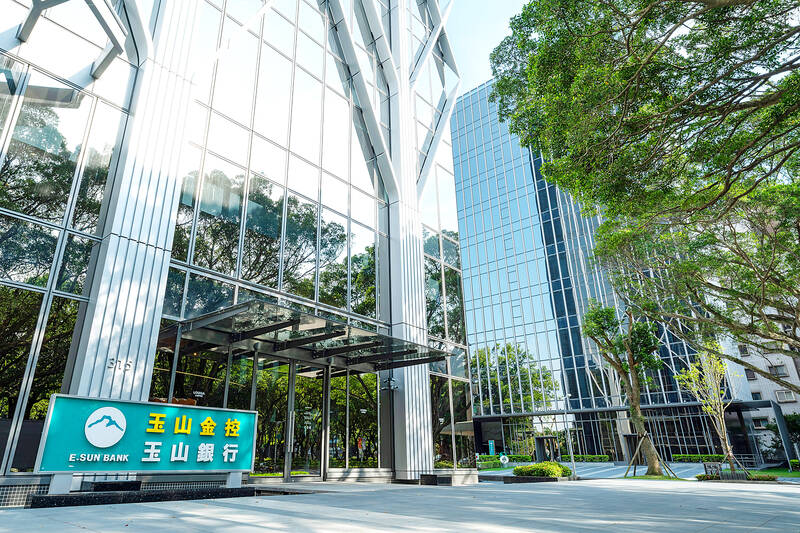E.SUN FHC has announced the publication of its “2023 Climate and Nature Report”, the first report of its kind in Taiwan to receive third-party verification under the Taskforce on Nature-related Financial Disclosures (TNFD) framework. This report successfully passed the British Standards Institute’s (BSI) first-ever conformity check on the TNFD framework, achieving the highest grade of “Level 5: Excellence”. Additionally, it has also earned the highest grade of “Level 5+: Excellence” for climate-related financial disclosures (TCFD).
E.SUN was the first financial institution in Taiwan to publish a joint TNFD and TCFD report in 2022. We further joined the ranks of TNFD Early Adopters at the beginning of 2024, announcing our commitment to align with TNFD disclosure standards. This report incorporates the LEAP assessment approach for investment and financing positions in Taiwan, reviewing over 35,000 domestic corporate operation sites and more than 120,000 mortgage collateral locations. In addition to utilizing international databases and methodologies, our evaluation is enhanced with localized data, including 51 operational characteristics and geospatial indicators, forming 31 data layers. Furthermore, this report trials the TNFD’s nature scenario analysis, assessing the impacts of biodiversity loss and water stress scenarios on our investment and financing portfolio.
E.SUN is committed to integrating sustainability into its financial operations, encouraging corporate investment in resources, and establishing sustainable development goals. Through collaboration with the Agricultural and Food Agency, the Corporate Synergy Development Center, and the Tse-Xin Foundation, E.SUN launched the “Leopard Cat Loan Project” to provide financial support for agricultural producers seeking Traceable Agricultural Product verification, organic certifications, and Ministry of Environment Green Mark labeling. Moving forward, E.SUN plans to expand the Farm to Table sustainable food value chain, promoting a harmonious relationship between food production and nature.

Photo courtesy of E.SUN FHC
Since 2008, E.SUN has partnered with the Ministry of Agriculture’s Forestry and Nature Conservation Agency, National Taiwan University, and other organizations to continue its investment in tree planting and educational outreach activities. E.SUN also held the “No Net Loss and No Deforestation Forum” in November alongside Chunghwa Telecom, pledging to uphold biodiversity and refrain from deforestation. By joining forces with its customers and the broader community, E.SUN strives to protect vital forest resources.
E.SUN FHC Chairman Joseph N.C. Huang stated, “A good ESG strategy is fundamentally a good business strategy.” The transition from addressing climate issues to tackling nature-related challenges is laden with daunting tasks that require firm resolve and strong execution to overcome. In addition to our commitment to achieving net-zero emissions by 2050, E.SUN also endeavors to mitigate its impact on nature and aims to achieve “Nature Positive”. E.SUN will continue to actively exert a positive influence, driving sustainable transformation through innovative financial services and collaborative actions, and working alongside corporate partners and peers to create a beautiful home in harmony with nature.
Note: The current highest grade given by BSI for TNFD conformity is “Level 5: Excellence”, while the highest grade for TCFD conformity is “Level 5+: Excellence”.
Report Link: E.SUN FHC 2023 Climate and Nature Report

UNCERTAINTY: Innolux activated a stringent supply chain management mechanism, as it did during the COVID-19 pandemic, to ensure optimal inventory levels for customers Flat-panel display makers AUO Corp (友達) and Innolux Corp (群創) yesterday said that about 12 to 20 percent of their display business is at risk of potential US tariffs and that they would relocate production or shipment destinations to mitigate the levies’ effects. US tariffs would have a direct impact of US$200 million on AUO’s revenue, company chairman Paul Peng (彭雙浪) told reporters on the sidelines of the Touch Taiwan trade show in Taipei yesterday. That would make up about 12 percent of the company’s overall revenue. To cope with the tariff uncertainty, AUO plans to allocate its production to manufacturing facilities in

TAKING STOCK: A Taiwanese cookware firm in Vietnam urged customers to assess inventory or place orders early so shipments can reach the US while tariffs are paused Taiwanese businesses in Vietnam are exploring alternatives after the White House imposed a 46 percent import duty on Vietnamese goods, following US President Donald Trump’s announcement of “reciprocal” tariffs on the US’ trading partners. Lo Shih-liang (羅世良), chairman of Brico Industry Co (裕茂工業), a Taiwanese company that manufactures cast iron cookware and stove components in Vietnam, said that more than 40 percent of his business was tied to the US market, describing the constant US policy shifts as an emotional roller coaster. “I work during the day and stay up all night watching the news. I’ve been following US news until 3am

Taiwan will prioritize the development of silicon photonics by taking advantage of its strength in the semiconductor industry to build another shield to protect the local economy, National Development Council (NDC) Minister Paul Liu (劉鏡清) said yesterday. Speaking at a meeting of the legislature’s Economics Committee, Liu said Taiwan already has the artificial intelligence (AI) industry as a shield, after the semiconductor industry, to safeguard the country, and is looking at new unique fields to build more economic shields. While Taiwan will further strengthen its existing shields, over the longer term, the country is determined to focus on such potential segments as

COLLABORATION: Given Taiwan’s key position in global supply chains, the US firm is discussing strategies with local partners and clients to deal with global uncertainties Advanced Micro Devices Inc (AMD) yesterday said it is meeting with local ecosystem partners, including Taiwan Semiconductor Manufacturing Co (TSMC, 台積電), to discuss strategies, including long-term manufacturing, to navigate uncertainties such as US tariffs, as Taiwan occupies an important position in global supply chains. AMD chief executive officer Lisa Su (蘇姿丰) told reporters that Taiwan is an important part of the chip designer’s ecosystem and she is discussing with partners and customers in Taiwan to forge strong collaborations on different areas during this critical period. AMD has just become the first artificial-intelligence (AI) server chip customer of TSMC to utilize its advanced